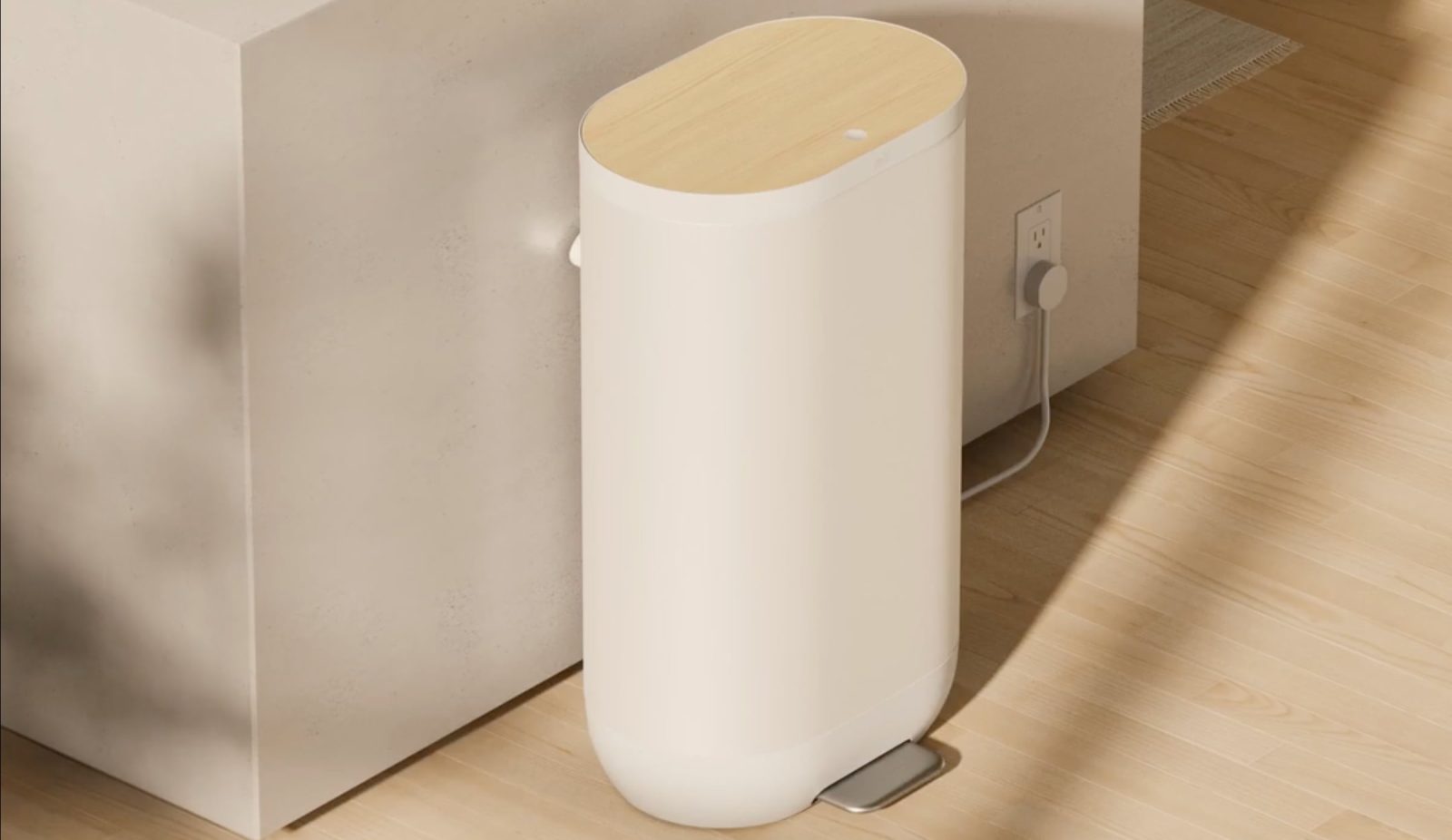
After leaving Apple, Matt Rogers founded Nest with Tony Fadell and stayed at Google for several years following the acquisition. Mill is a new company from Rogers that offers a “kitchen bin” with a monthly subscription that can “de-stink your kitchen, stop wasting food, and make a positive impact.”
The goal behind Mill is to “keep food out of landfills” and “send it back to farms.” It does this through a “kitchen bin” where you throw away food scraps:
A general rule of thumb, if it comes off your cutting board, you can add it to the Mill kitchen bin.
| Fruits | Meats and fish |
| Vegetables | Dairy and eggs |
| Rinds, peels, pits | Plate scrapings |
| Chicken, fish, and other small bones | Food-soiled paper towels, napkins, filters |
It cannot take larger bones, shells, large amounts of liquid or grease, houseplants/flowers, drugs/medicine, compostable plastics or packaging, paper plates or bowls, or take-out containers.
What you put in is dried and compacted nightly into “Food Grounds,” which has the benefit of de-stinking the contents with a charcoal odor filter in the bin. Once full, you “empty the bucket into a prepaid return box” with the Food Grounds being turned into “food for chickens — so all the nutrients from your kitchen scraps can stay in the food system, instead of being lost forever in a landfill.” This is not composting, with the grounds still considered food “minus the water, bulk, odor, and ick.”
Currently, we’re working through the necessary scientific and regulatory processes to establish a safe and nutritious chicken feed ingredient we can distribute commercially. We’ll share more on our progress later this year.
Featuring Wi-Fi connectivity, the bin measures 27 x 16 x 15 inches with a weight of 50 pounds and an 11 liter internal bucket that’s removable for easy transferring. It has a powder-coated steel enclosure with metal pedal and “hidden full-color LED interface” on the lid and locking mechanism.
We estimate the bin will use around 1 kilowatt-hour (kWh) of electricity per day, averaged over multiple weeks of usage (if you generate around 1.5lbs of kitchen scraps per day). Today, that’s about the same amount of energy per day as an energy-efficient dishwasher, but with software updates, the bin will keep getting better and more efficient over time.
Mill costs $396 a year, which is billed annually and comes to $33 per month. It’s also available as a $45/month monthly plan with the bin costing $75 to deliver. As part of this you get the Mill kitchen bin, companion app, Food Grounds shipping, replacement charcoal filters, support, and a warranty.
Mill is taking $33 refundable deposit/reservations today with the first shipments in spring 2023
FTC: We use income earning auto affiliate links. More.










Comments